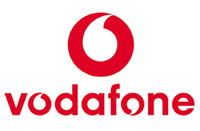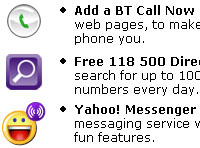 In a pretty gung-ho move that shows a lot of seriousness, the US Department of Justice (DoJ) have announced the results of Operation Site Down. More than 20 raids occurred in Australia, Belgium, Canada, Denmark, France, Germany, Israel, the Netherlands, Portugal and the UK, as well as 70 in the USA.
In a pretty gung-ho move that shows a lot of seriousness, the US Department of Justice (DoJ) have announced the results of Operation Site Down. More than 20 raids occurred in Australia, Belgium, Canada, Denmark, France, Germany, Israel, the Netherlands, Portugal and the UK, as well as 70 in the USA.
Four arrests: David Fish; Nate Lovell; Chirayu Patel; and William Veyna were made in the US with them being charged with violating federal copyright protection laws.
Attorney General Alberto R. Gonzales was nothing if not stern, “By dismantling these networks, the Department is striking at the top of the copyright piracy supply chain—a distribution chain that provides the vast majority of the illegal digital content now available online, and by penetrating this illegal world of high-technology and intellectual property theft, we have shown that law enforcement can and will find — and we will prosecute — those who try to use the Internet to create piracy networks beyond the reach of law enforcement.”
We’d imagine there’s been a fair degree of celebration at this news in the entertainment world – dinner tables will be booked.
The DoJ reported that hundreds of computers had been seized, leading to at least eight major online distribution networks being shut down.
With the size of the seizures we’d imagine there’ll a big gap left in the world downloading. It will be interesting to see how long it takes to repair itself.
One thing the Attorney General said particularly struck us, “this illegal world of high-technology and intellectual property theft.” Let’s hope the two of these are bound together, and he’s not talking about a separate illegal world of high-technology. Now that would be worrying.
While closing down some file sharing networks for a period of time will temporarily throttle the flow of material over the Internet, we see far more direct financial loss through gangs selling DVD’s around pubs, clubs and streets of the UK, where this has reached such a level that we have seen a pub with “No DVDs” signs on the door.
File trading on the Internet is done by spending the time doing it, but it has no financial gain. The DVDs being sold in public are making someone very rich.
It does make you think that if downloading high-quality movies without seeing the head of someone getting up in the middle of the film to go to the toilet were easy, most of that fiver that people pay on the street would end up in the film company’s pocket. Sadly they’re waiting for DRM to be in place first.

 Sony’s PlayStation Portable is a media hub, but unfortunately, apart from games there isn’t really any content available for it (not forgetting unlucky UK citizens who can’t even officially buy one until September).
Sony’s PlayStation Portable is a media hub, but unfortunately, apart from games there isn’t really any content available for it (not forgetting unlucky UK citizens who can’t even officially buy one until September). Using an Apple Mac has many advantages and ripping DVDs is one of them. Look for an application MacTheRipper, it does exactly what is says on the tin, and takes the MPEG2 information from a DVD while removing region coding, macrovision and other DVD annoyances and stores the resulting files on the hard disk.
Using an Apple Mac has many advantages and ripping DVDs is one of them. Look for an application MacTheRipper, it does exactly what is says on the tin, and takes the MPEG2 information from a DVD while removing region coding, macrovision and other DVD annoyances and stores the resulting files on the hard disk. Windows users don’t despair
Windows users don’t despair It’s not surprising that when an entrepreneur sees something as successful as Skype has been, (you can’t see over 127m downloads in any other way), that the word opportunity is writ large in their eyes. This is especially when that person likes disrupting legacy business models, such as the phone system.
It’s not surprising that when an entrepreneur sees something as successful as Skype has been, (you can’t see over 127m downloads in any other way), that the word opportunity is writ large in their eyes. This is especially when that person likes disrupting legacy business models, such as the phone system. The big differentiator between Gizmo Project (a temporary name – they’re asking for suggestions) and Skype is Gizmo uses the open standard of SIP (Session Initiation Protocol, for those who really want to know), as opposed to the proprietary method Skype uses. This goes after Skype in the only way it can.
The big differentiator between Gizmo Project (a temporary name – they’re asking for suggestions) and Skype is Gizmo uses the open standard of SIP (Session Initiation Protocol, for those who really want to know), as opposed to the proprietary method Skype uses. This goes after Skype in the only way it can. Skype has done well in encouraging other companies to build extra software and importantly, hardware including phone handsets (
Skype has done well in encouraging other companies to build extra software and importantly, hardware including phone handsets ( AOL launches video search service
AOL launches video search service Podcast subscriptions have rocketed over the one million mark, with figures from Pew Internet and American Life suggesting that over 6 million Americans – nearly a third of the estimated 22 million owners of MP3 players – have listened to podcasts.
Podcast subscriptions have rocketed over the one million mark, with figures from Pew Internet and American Life suggesting that over 6 million Americans – nearly a third of the estimated 22 million owners of MP3 players – have listened to podcasts. Life on the Web going to get considerably faster for some denizens of London, thanks to an ultrafast 24Mb broadband connection offered by Be* Unlimited.
Life on the Web going to get considerably faster for some denizens of London, thanks to an ultrafast 24Mb broadband connection offered by Be* Unlimited. Cable company Telewest Broadband is making Teleport, its TV-on-demand service, available to over 26,000 customers in Cheltenham and Gloucester today.
Cable company Telewest Broadband is making Teleport, its TV-on-demand service, available to over 26,000 customers in Cheltenham and Gloucester today. Teleport Movies offers around 200 current and library films from FilmFlex, with rental charges costing between £2.00 (~$3.59, ~€3) and £3.50 (~$6.28, ~€5.20) for a 24-hour rental period.
Teleport Movies offers around 200 current and library films from FilmFlex, with rental charges costing between £2.00 (~$3.59, ~€3) and £3.50 (~$6.28, ~€5.20) for a 24-hour rental period. Quake to be ported to 3D-enabled mobile phones
Quake to be ported to 3D-enabled mobile phones Bluetooth group offers security tips to avoid attacks
Bluetooth group offers security tips to avoid attacks Etch A Sketch makes a comeback on mobile phones
Etch A Sketch makes a comeback on mobile phones A study from mobile media firm Enpocket, asked which medium consumers would give up last if they had to choose between TV, newspapers, mobile phone, the Internet, radio and magazines.
A study from mobile media firm Enpocket, asked which medium consumers would give up last if they had to choose between TV, newspapers, mobile phone, the Internet, radio and magazines. It’s not everyday a new mobile handset company comes along, so it was sad news to hear that Sendo, a relatively new entrant, had gone into administration. Motorola weren’t slow to see a good buy, and purchased it by the afternoon. Guy Kewney takes us through the reasons.
It’s not everyday a new mobile handset company comes along, so it was sad news to hear that Sendo, a relatively new entrant, had gone into administration. Motorola weren’t slow to see a good buy, and purchased it by the afternoon. Guy Kewney takes us through the reasons. The ability to disconnect from the world has taken a further blow as Vodafone and Microsoft announce a global tied up to offer MSN Messenger IM to Vodafone’s mobile phone customers. People sitting at their MSN Instant Messaging (IM) client on their computers will be able to carry out chats with their Vodafone carrying chums.
The ability to disconnect from the world has taken a further blow as Vodafone and Microsoft announce a global tied up to offer MSN Messenger IM to Vodafone’s mobile phone customers. People sitting at their MSN Instant Messaging (IM) client on their computers will be able to carry out chats with their Vodafone carrying chums. Putting on his best tech-savvy face, Peter Bamford, Chief Marketing Officer for Vodafone glowed, “IM is a growing part of the increasingly important mobile messaging market. By bringing our collective customers together, we’ll deliver more options for staying in touch when messaging. Our agreement will grow IM and SMS, meaning additional revenue for Vodafone.”
Putting on his best tech-savvy face, Peter Bamford, Chief Marketing Officer for Vodafone glowed, “IM is a growing part of the increasingly important mobile messaging market. By bringing our collective customers together, we’ll deliver more options for staying in touch when messaging. Our agreement will grow IM and SMS, meaning additional revenue for Vodafone.” While we didn’t get to any exact figures, we were able to find out the service will be charged on the basis of each message sent. This will cause current IM users to radically change the way they use IM. No more will they be quickly replying with short witticisms, but will need to become more Bard-like in their compositions – if they don’t want to end up with huge bills at the end of the month.
While we didn’t get to any exact figures, we were able to find out the service will be charged on the basis of each message sent. This will cause current IM users to radically change the way they use IM. No more will they be quickly replying with short witticisms, but will need to become more Bard-like in their compositions – if they don’t want to end up with huge bills at the end of the month. Delivering a king size slipper to the ample bottom of BT, the Advertising Standards Authority (ASA) has ruled that BT’s PC-based internet telephony service, BT Communicator, does not make “free” calls.
Delivering a king size slipper to the ample bottom of BT, the Advertising Standards Authority (ASA) has ruled that BT’s PC-based internet telephony service, BT Communicator, does not make “free” calls. The Kentish complainant pointed out that by using the VoIP service he’d rapidly burn up the 1 gig a month usage limit that BT slaps on its Broadband Basic packages – and once he exceeded that limit, he’d have to start forking out for additional time online.
The Kentish complainant pointed out that by using the VoIP service he’d rapidly burn up the 1 gig a month usage limit that BT slaps on its Broadband Basic packages – and once he exceeded that limit, he’d have to start forking out for additional time online. Smarting from a derriere rouge par excellence, BT was told “not to describe calls that depleted a consumer’s usage allowance as ‘free’ and to state prominently in advertisements for BT Communicator that making telephone calls depleted a consumer’s broadband usage allowance”.
Smarting from a derriere rouge par excellence, BT was told “not to describe calls that depleted a consumer’s usage allowance as ‘free’ and to state prominently in advertisements for BT Communicator that making telephone calls depleted a consumer’s broadband usage allowance”.